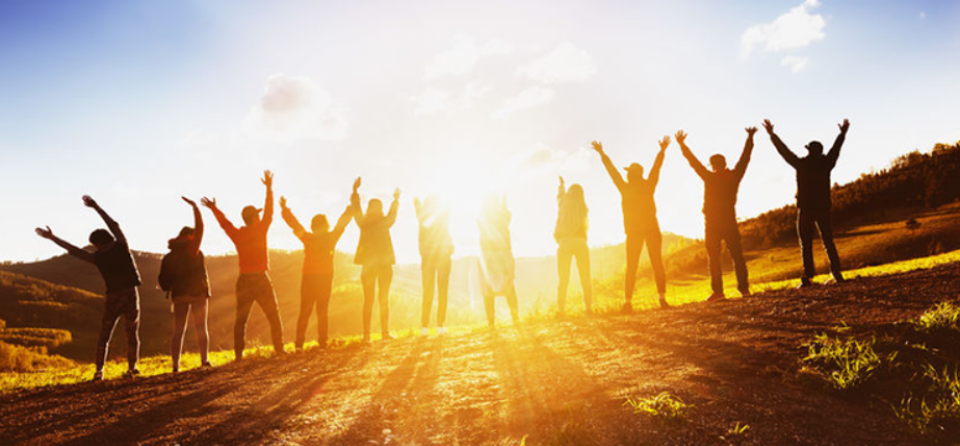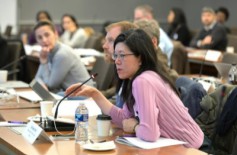
STEP 5: GET GOING!
Select items from a list of actions you can take all on your own -- to start to make a difference.
WHAT WE CONSUME
Listed in order of mitigation potential within each category.
TRANSPORTATION
- Live car-free
- Shift to battery electric vehicle
- One less flight (long round trip flight)
- Shift to public transportation
- One less flight (medium length round trip flight)
- Less car transport
- Shift to plug-in hybrid electric vehicle/hybrd electric vehicle
- Less transport by air
FOOD
- Vegan diet
- Improved cooking equipment
- Vegetarian diet
- Shift to lower carbon meats (less beef, lamb)
- Organic food
- Regional/local food
- Food waste reduction
- Seasonal/fresh food
HOUSING
- Renewable electricity
- Refurbishment and renovation
- Heat pump
- Renewable-based heating
- Produce renewable electricity
- Better thermal insulation
- Hot water saving
- Smart metering
- Lower room termperature
- More efficient appliances
OTHER CONSUMPTION
- No pets
- Service/sharing economy
- Fewer purchases/durable items
- Energy and material efficiency
- Less textiles (e.g., clothing purchases)
- Bio-plastics/less plastic/chemicals
- Recycled materials
- Less paper
- Recycle
Reference for the above lists: https://iopscience.iop.org/article/10.1088/1748-9326/ab8589/pdf
WHERE WE PUT OUR MONEY
Where we bank
In the five years since the Paris Agreement, the world's 60 biggest banks have provided $3.8 trillion in funding for fossil fuel projects that contribute to climate change. Global banks such as JP Morgan Chase, Citi, Wells Fargo, and Bank of America are leading contributors to climate change and are financing fossil fuel projects and companies that impact communities every single day. The money banks have available to provide funding and loans for environmentally harmful projects comes from you—and from your checking and savings accounts. (Reference click here and here)
“According to a study done by the European bank Nordea, moving money to a sustainable bank account is 27 times more effective in reducing carbon footprint than if you flew less, ate less meat, took shorter showers, and took public transportation combined,” says McNeill. “The single biggest thing we can do to help the environment is also the easiest.” (Reference click here)
Where we invest
- Reduce or eliminate exposure to fossil fuel (oil, natural gas, coal) exploration, production, and distribution companies.
- Tilt your portfolio toward renewable energy companies and companies with strong climate commitments. (Reference click here)
- (This applies to an investment portfolio and pension accounts).
HOW WE SPEND OUR MONEY
What we buy
For most products, the greatest contributions to embodied energy and greenhouse gas emissions happen during production (in other words, they are generated before the product is sold, or delivered to a home or business). The total greenhouse gas emissions associated with a product or material is known as its carbon footprint. The U.S. Environmental Protection Agency found that about 42 percent of all greenhouse gases are associated with the production, transportation, and disposal of materials and products.
- Buy what you need, and buy for durability
- Borrow and share
- Reuse/repurpose
- Repair
- Buy recycled
- Don't waste food
- (Reference click here)
Where we donate
- Donate to support climate change organizations.
- Caution regarding donating to foundations or universities who invest their endowment in fossil fuel companies.
INFLUENCING DECISION-MAKERS
Voting
Vote for political candidates who support actions to mitigate climate change.
Advocacy
Individual citizen participation in groups advocating for collective action in the form of political solutions, such as carbon pricing, meat pricing, ending subsidies for fossil fuels and animal husbandry, and ending laws encouraging car use, is the most impactful way that an individual can take action to prevent climate change. (Reference click here)
Protest
Public protests to influence decision-makers. (Reference click here).
TALKING WITH FAMILY AND FRIENDS
"Discussing global warming leads to greater acceptance of climate science," according to a 2019 study in the Proceedings of the National Academy of Sciences. The Yale Climate Communication Program recommends initiating "climate conversations" with more moderate individuals. Patient listening is key, to determine the personal impacts of climate events on an individual, and to elicit information about the other person's core values. Once personal climate impacts and core values are understood, it may become possible to open a discussion of potential climate solutions which are consistent with those core values. (Reference click here)





